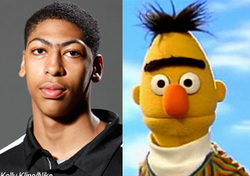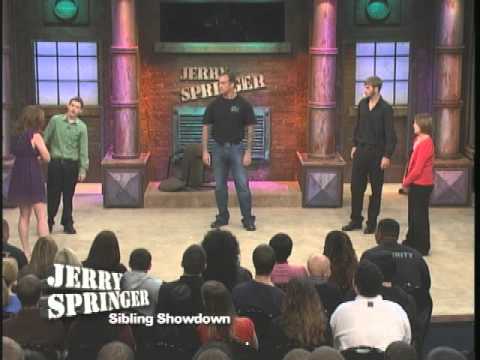My eighth challenge of 2012 is coming to a close – and it couldn’t happen any sooner. To be honest, I raised the white flag a few days ago (and I don’t mean the hit song by Dido). August’s challenge, to follow a daily-increasing list of Old Testament laws drawn randomly from a fishbowl, didn’t have quite the impact I’d hoped. I blame two things. First, many of the laws I were to follow had no direction application to my life – like the one prohibiting a high priest from marrying a widow, or the one that demands every king of Israel be anointed with holy oil. There just wasn’t much I could do with those. But even more than that, this month’s challenge has been less-than-stellar because, as it turns out, I’m terrible at following rules. Who knew?
Many biblical scholars believe the long and oftentimes complicated law was introduced as a way of convincing mankind that they could never achieve redemption on their own – a reminder that they need God and His mercy. If that truly was God’s intent, then I’d have to say He knocked it out of the park. I attempted to follow less than thirty of the 613 laws outlined in the Old Testament, and even then I feel far short of perfection. For example, the day after drawing the “don’t mix meat and dairy” law, I found myself home late, having skipped dinner due to work. The only thing in my pantry: a can of clam chowder. That was easily the most unenjoyable meal I’ve had in a long time, each deliciously sinful spoonful reminding me of my failure to meet God’s ancient standards. And that’s to say nothing about the fact that I had to wear pantyhose on my head for a church promotional video (law #365 prohibits men from wearing women’s clothing) or the fact that I never atoned any unsolved murders by sacrificing a heifer (as mandated by law #297). Very quickly, August turned into a lesson on humility. Turns out I’m not as righteous as I thought. The good news? I don’t have to be.
The question of the ancient laws and their place in Christianity was a hot topic following Christ’s resurrection and ascension. The apostle Paul may have tackled this issue more than any other – and understandably so. For thousands of years, God’s people believed they garnered salvation through their adherence to a set of rules; then Christ arrived on the scene, teaching that the “entire law and the prophets” – all 613 rules – could be summed up in two statements: “Love the Lord your God,” and “Love your neighbor as yourself.” Of course, He went even farther than that. With no man able to fully satisfy the requirements of the law, Christ offered Himself up as “the way, the truth and life.” The redeeming sacrifice of Jesus not only freed us from the slavery of sin, but it paid our debt to those ancient standards, rescuing us from their righteous punishment. In the third chapter of his letter to the Galatians, the apostle Paul touches on this beautiful mystery:
“Christ paid the price to free us from the curse that God’s laws bring by becoming cursed instead of us… Christ paid the price so that the blessing promised to Abraham would come to all people of the world through Jesus Christ… If we have to gain the inheritance by following laws, then it no longer comes to use because of the promise. However, God freely gave the inheritance to Abraham through a promise.
What, then, is the purpose of the laws given to Moses? They were added to identify what wrongdoing is. If those laws could give us life, then certainly we would receive God’s approval because we obeyed them. But Scripture states that the whole world is controlled by the power of sin. Therefore, a promise based on faith in Jesus Christ could be given to those who believe. We were kept under control by Moses’ laws until this faith came.
Before Christ came, Moses’ laws served as our guardian. Christ came so that we could receive God’s approval by faith. Now that this faith has come, we are no longer under the control of a guardian. You are all God’s children by believing in Christ Jesus. Clearly, all of you who were baptized into Christ’s name have clothed yourselves with Christ. If you belong to Christ, then you are Abraham’s descendants and heirs, as God promised.”
 MMMM! Now that’ll preach! While this challenge feels like a momentous flop, on another hand, it’s actually been quite successful. I may have failed to keep the law, but I’m still leaving this challenge behind having achieved my goal of experiencing a deeper, fuller appreciation for the grace and freedom found in Christ. That and a nice unibrow, thanks to law #345 which prohibits shaving of the forehead. Fear the brow, indeed.
 On a side note, if this month’s challenge managed to peak your interest, be sure to check out The Year of Living Biblically by A.J. Jacobs. This book details the author’s hilarious year-long quest to follow every single rule in the Bible – all 613 from the Old Testament as well as nearly 300 more found in the New Testament. Identifying himself as agnostic, but of Jewish heritage, Jacobs found himself increasingly interested in the role of faith in everyday life after becoming a father. And so he set out to explore his questions by doing everything the Bible said, from “loving thy neighbor” to “not wearing clothes of mixed fiber” to “being fruitful and multiplying.” I started the book about a week ago, and can hardly but it down - its insightful, engaging, and laugh out loud funny. For now, I think I’ll leave the Old Testament rule-following to the professionals – or at least the writers with book deals.
For what’s its worth, here’s how the entire month panned out. See ya in September!
The Laws (Week 1):
1) Unsolved murders must be atoned by sacrificing a heifer (Deut 21:1-9)
2) Never mix incense or olive oil with a flour sacrifice (Lev 5:11)
3) Don’t favor anyone (rich or poor) in matters of justice (Lev 19:15)
4) Do no work on the first day of the Festival of Booths (Lev 23:33-35)
5) Don’t have sex with your sister-in-law (Lev 18:16)
6) The High Priest should never marry a widow (Lev 21:14)
The Laws (Week 2):
7) Only appoint as king the man whom God chooses, and never a foreigner (Deut 17:15)
8) Don’t shave your forehead or cut the sides of your beard (Lev 19:27)
9) Don’t fear false prophets – instead, kill them (Deut 18:20-22)
10) A man with an unusual bodily discharge must cleanse
himself by following a precise ritual of washings and sacrifices (Lev 15:13-15)
11) Don’t blaspheme God or curse your rulers (Ex 22:28)
12) The High Priest shall never marry a profaned woman (i.e. prostitute) (Lev 21:7)
13) Don’t rebuild a city if its been destroyed due to idolatry (Lev 13:16)
14) The High Priest and King should be anointed with holy oil (Exodus 30:31)
The Laws (Week 3):
15) A man must never wear a woman’s clothes (or vice-versa) (Deuteronomy 22:5)
16) Anyone with leprosy or a skin disease will be declared unclean
and must live outside the camp until he is healed (Leviticus 13:2-46)
17) Never let the fire on the altar burn out (Leviticus 6:13)
18) On the day of worship, light no fires in your home (Exodus 35:3)
19) Don’t take advantage of any widow or orphan (Exodus 22:22)
20) Write the Song of Moses by hand (Deuteronomy 31:19)
21) Don’t mix meat and dairy at mealtimes (Exodus 23:19)
The Laws (Week 4):
22) Priests should be set apart as holy (Leviticus 21:1,8)
23) Don’t commit incest with your daughter or step-daughter (Leviticus 18:17)
 Week three went a little something like this:
Wednesday, August 15th – Law #365: No Mixed Gender Clothing
“A woman must never wear anything men would wear, and a man must never wear women’s clothes. Whoever does this is disgusting to the Lord your God.”
_Deuteronomy 22:5
That really puts a damper on my plans for cross-dressing Thursdays. Guess I’ll have to return that lace camisole – and it fit so well.
Thursday, August 16th – Law #565: Leprosy
“If anyone has a sore, a rash, or an irritated area on his skin that turns into an infectious skin disease, he must be taken to the priest… when the priest has examined him, he must declare him unclean…People who come down with a skin disease must wear torn clothes and leave their hair uncombed… and call out, ‘unclean, unclean!’ As long as they have the skin disease, they are unclean. They must live outside the camp.”
_Leviticus 13:2-46
In the days of the Old Testament, being declared unclean was a big deal – you were uprooted from your home, family, and community, forced to live in quarantine with the other “untouchables.” Uncleanliness was contagious - everything you touched, including other people, would become unclean as well. The only answer was segregation. And while leprosy was most certainly a dreadful disease, I image the pang of loneliness and isolation could be just as deadly.
For the ancient Israelites uncleanliness represented a deep spiritual problem, a man or woman who had fallen out of the good graces of the Creator. For that deeply religious culture, lepers had little worth other than to be avoided. This makes what Christ does in passages such as Mark 1 so colossal. God, wearing human skin, not only dares to associate with a leper, the unclean, but He reaches out and touches him. The book of Galatians says that Christ freed us from the curse of the law by taking the curse upon Himself. While humans would avoid lepers for fear of becoming unclean, Christ dared to reach out and touch them. And with something as simple as a touch, the Messiah took the man’s uncleanliness, separation and depravity upon Himself, and left in its stead healing, acceptance, and wholeness – that is truly a miracle.
Friday, August 17th – Law #442: We Didn’t Start the Fire…
“The fire must always be burning on the altar. It must never go out.”
_Leviticus 6:13
It’s a good thing I’m not a high priest and don’t have to tend to the altar. My camping buddies can attest, you better not count on me to get a fire started.
Saturday, August 18th – Law #303: Especially on Sunday
“Never light a fire in any of your homes on [the] day of worship.”
_Exodus 35:3
Every time my fiancé comes to my house, she says two things: 1) “Do you ever clean up?” and 2) “Did you just fart?”. The answer to both of those questions is usually “no.” And because she seems to think my house has a certain unpleasant odor, she’s strategically placed candles everywhere. She’s not going to be happy about this law.
Sunday, August 19th – Law #40: Be Nice
“Never take advantage of any widow or orphan.”
_Exodus 22:22
This is yet another reminder that God is close to, and cares for, the marginalized – the lonely, ignored and forgotten. As His children, it follows that we should do the same.
Monday, August 20th – Law #16: Write a Song
“Write down this song, teach it to the Israelites, and have them sing it. This song will be a witness for me.”
_Deuteronomy 31:19
Just prior to their long-awaited entrance into the Promised Land, the ancient Israelites were taught a song by their beloved leader Moses. Knowing that he wouldn’t be entering their new homeland, Moses handed the reigns over to his second in command, Joshua, and left his people with the words of a song. (This certainly says something about the power of music.) The ballad recounts some of the history of the Israelite nation, as well as stressing the importance that God’s people stay faithful to Him as they enter into this next stage of their story. Moses’ hope was that the people would learn this song and teach it to their descendants, a melodic reminder to keep the people on track after he was gone. It didn’t exactly work like Moses hoped, but I can certainly verify one thing – it gives “American Pie” a run for its money. I think my hand still has a cramp. Check out Deuteronomy 32 and you’ll see what I mean.
Tuesday, August 21st – Law #163: No Cheeseburgers in the Promised Land
“Never cook a young goat in its mother’s milk.”
_Exodus 23:19
Its not too common nowadays to cook meat in milk, so most orthodox Jews interpret this law as a prohibition against meat and dairy together. So no cheeseburgers. Or sausage gravy. Or most Southern Baptist potluck casseroles. Bummer.
Wednesday, August 22nd – Law #381: Priests Should Be Holy
“Tell the priests… be holy because I, the LORD, am holy. I set you apart as holy.”
_Leviticus 21:1,8
I’m no priest, but as a youth-minister I’d say this is still a goal for everyone in ministry.
Today’s been a big day in my story – literally and figuratively. This afternoon, I received the initial galley proof of my yet-to-be-published book. Although it sounds like something on a pirate ship, a galley is actually an electronic first draft of a book – but I’d much rather call it “a dream, two years in the making, beginning to come true.” My job over the next few weeks will be to reread through my book (again!), checking not only for spelling and grammar errors, but also spacing issues, how the text sits on the page, and how the margins affect the paragraphs. The galley is an exact reflection of how the printed book will appear, so if changes need to be made, this is the time to do it. Once my galley edits are made, the book will be sent to the printer – and in a month or so, you could have one in your hands. This is really happening!
There are, of course, a few things that need some tweaking. My biggest concern right now is price. At this point, my book is 330 pages long (eat your heart out Tolstoy), which wouldn’t matter much except that the publishing company determines the book’s retail price based upon its length. They’ve set its initial price at $22.95 – even for a book-lover such as myself that seems too high. Although I’ll be able to personally sell copies at a discount, I’d like to reduce the retail price since my book will be available through online distributors like Barnes & Noble and Amazon. I’m investigating a few options – making the pages larger and shrinking the font – as possible ways of making this more economical. On a side note, if you have an eBook reader, you’ll be able to get ahold of my opus for the much lower price of $3.99.
To top it all off, as I write this, my friend and insanely talented graphic designer Sarah Rohach is putting the finishing touches on my book cover. She knocked it out of the park with this piece of art – I couldn’t be more excited about it!
After feeling very much lost at sea throughout this whole publishing process (which, if you’ve been following the blog, you remember started all the way back in April), I am finally beginning to see the first vague outlines of land approaching – and what a beautiful sight it is. But please, stay off the galley. I just cleaned it.
Yesterday was the two-week mark of August’s challenge to follow an ever-growing list of Old Testament laws. As I find myself approaching the halfway point of this challenge, two observations are becoming clear.
First, I don’t feel much different. That is to say, following these fourteen laws has had little effect on my spiritual life. I don’t feel more holy, righteous, or closer to God than I did back in July – but this isn’t totally unexpected. The writers of the New Testament, especially Paul, go to great lengths to remind us that its “by grace we’ve been saved, through faith – it is the gift of God, not by works, so that no one can boast.” No matter how diligent I may be at keeping these laws, it will never be enough to save me, to set me right with God.
Which leads into point number two: I’m terrible at keeping laws. Seriously, I have only fourteen to follow, and I’m positive I couldn’t name them all without looking – and what’s worse, nearly half of them don’t even apply to me (thank goodness I’m not a high priest or a king). In Romans chapter seven, Paul explains that the purpose of the all those laws, all 613 of them, was to convince humanity of its sinfulness and inability to reconcile itself to God under its own power. It only took me fourteen laws to hear that message loud and clear. Even if my very life depended on it, I still wouldn’t be able to follow the law without stumbling over at least one part of it. This recognition, however, makes the sacrifice of Christ, who the book of Galatians describes as “[redeeming] us from the curse of the law by becoming a curse for us,” that much sweeter.
Here’s how the laws have shaken out so far – and I’ll be adding yet another one in the morning. Who knew keeping a few rules would be so difficult?
The Laws (Week 1):
1) Unsolved murders must be atoned by sacrificing a heifer (Deut 21:1-9)
2) Never mix incense or olive oil with a flour sacrifice (Lev 5:11)
3) Don’t favor anyone (rich or poor) in matters of justice (Lev 19:15)
4) Do no work on the first day of the Festival of Booths (Lev 23:33-35)
5) Don’t have sex with your sister-in-law (Lev 18:16)
6) The High Priest should never marry a widow (Lev 21:14)
The Laws (Week 2):
7) Only appoint as king the man whom God chooses, and never a foreigner (Deut 17:15)
8) Don’t shave your forehead or cut the sides of your beard (Lev 19:27)
9) Don’t fear false prophets – instead, kill them (Deut 18:20-22)
10) A man with an unusual bodily discharge must cleanse himself
by following a precise ritual of washings and sacrifices (Lev 15:13-15)
11) Don’t blaspheme God or curse your rulers (Ex 22:28)
12) The High Priest shall never marry a profaned woman (i.e. prostitute) (Lev 21:7)
13) Don’t rebuild a city if its been destroyed due to idolatry (Lev 13:16)
14) The High Priest and King should be anointed with holy oil (Exodus 30:31)
 I spent much of this weekend living the farm life with some friends in Hancock County, Kentucky, situated over on the western part of the state, right on the Ohio River. My time was split between herding cattle, working in the woodshop, and eating my body weight in biscuits and peaches. Having a working farm is one of my dreams, so I relished the opportunity to spend some time on one. It did, however, cut into my ability to blog (no wireless internet), so here’s a little run down on the Old Testament laws that have been added to my list in the past five days.
Wednesday, August 8 – Law #583: No Foreign Kings
“Be sure to appoint the king the LORD your God will choose. He must be one of your own people. Never let a foreigner be king, because he’s not one of your own people.”
_Deuteronomy 17:15
No foreigners as my king. Check. Donald Trump’s been all over this one for years.

Thursday, August 9 – Law #345: Hairy = Holy
“Never shave the hair on your foreheads, and never cut the edges
of your beard.”
_Leviticus 19:27
A biblical mandate to have a beard?! My. Favorite. Law. Ever! Of course, not shaving the hair on my forehead could very well result in a mean unibrow by the time August ends. I’m coming for you, Anthony Davis. And Bert.
Friday, August 10 – Law #311: False Prophets Bite the Dust
“Any prophet who dares to say something in my name that I didn’t command him to say or who speaks in the name of other gods must die. You may be wondering, ‘How can we recognize that the Lord didn’t speak this message?’ If a prophet speaks in the Lord’s name and what he says doesn’t happen or come true, then it didn’t come from the Lord. That prophet has spoken on his own authority. Never be afraid of him.”
_Deuteronomy 18:20-22
This is very sound advice, and the reason why I’m not worried about the world ending on December 22nd, 2012 – or on any other date a human conjures up, for that matter.
Saturday, August 11 – Law #503: Gross
“When a man has any unusual bodily discharge, such a discharge is unclean… He is to count off seven days for his ceremonial cleansing; he must wash his clothes and bathe himself with fresh water, and he will be clean. On the eighth day he must take two doves or two young pigeons and come before the Lord to the entrance to the tent of meeting and give them to the priest. The priest is to sacrifice them, the one for a sin offering and the other for a burnt offering. In this way he will make atonement before the Lord for the man because of his discharge.”
_Leviticus 15:1, 13-15
I’m not about to touch that one.
Sunday, August 12 – Law #581: Respect Their Authoritah!
“Do not blaspheme God, or curse the ruler of your people.”
_Exodus 22:28
I hate politics – the backbiting, animosity between parties and stubbornness to help the common man turned me off to the system years ago. Unfortunately, I’ve often shown my lack of faith in the political process by disrespecting those in power. Part one of this law, to respect God, is something I’ve strived for my entire life. Not cursing my rulers, however, now that’s a new one – and I’ve got the rest of this month to figure out just how to bite my tongue.
I’ll be honest, I expected this month’s challenge to be, well, a bit more challenging. When I think of the Old Testament Law, images of strict dietary guidelines, rules for cleanliness and restrictions regarding clothing come to mind. So far, I haven’t encountered a single law that’s been very difficult to follow.
Of course, with 613 laws in the Old Testament, there’s a lot of ground to cover, and God doesn’t leave any stone unturned. Take, for instance, yesterday’s law (#96) from Leviticus chapter 18 that prohibits sexual relationships with in-laws. God doesn’t stop there – in the verses surrounding it, He practically goes through the entire family tree, pointing out that mothers, aunts, stepsisters, and beyond are all off limits in regards to sexual relationships. It’s a thorough, if a bit disturbing, list. With all this talk of incest, this would be the perfect place for a joke about Kentucky – but since I love her so much, I’m going to refrain. For now.
Today’s law, #385, is part of a larger chapter dedicated to establishing and maintaining the holiness of the priesthood. This specific rule states that the chief priest is forbidden from marrying “a widow, a divorced woman, a woman who has lost her virginity, or a prostitute. He may only marry a virgin from his own people” (Lev 21:14). The chief priest had the all-important job of coming before God on behalf of the people, entering the holiest room of the temple once a year to offer sacrifices for the sins of the nation. If the chief priest failed to follow all the cleansing and purification rituals before entering into God’s presence, He would be struck down dead. And you think your job’s stressful.
This prohibition in regards to marriage is just one on a list of nearly thirty laws which apply only to the priests. Each of these priestly guidelines was designed to set these men apart, preparing them for their holy employment. Since I’m not the chief priest, this law doesn’t directly apply to my challenge or daily life, although it does serve as a good reminder that followers of Christ should be continually seeking after holiness. Quoting from the Law, the apostle Peter reminds readers of his first letter that we are “to be holy as [the LORD] is holy.”
Just in case you’re keeping score at home, the laws I’ve drawn from the fishbowl during this first week are listed below. (There are only six because I didn’t officially start this challenge until the second day of August.) My goal is to continue to follow each of these laws, even as I add new ones each day. At this point, I’m still able to remember and recall each rule, although by the time I reach the end of this month that may not be the case.
So far, so good on these Old Testament laws, but who knows what tomorrow holds?
The Laws (So Far):
1) Unsolved murders must be atoned by sacrificing a heifer (Deut 21:1-9)
2) Never mix incense or olive oil with a flour sacrifice (Lev 5:11)
3) Don’t favor anyone (rich or poor) in matters of justice (Lev 19:15)
4) Do no work on the first day of the Festival of Booths (Lev 23:33-35)
5) Don’t have sex with your sister-in-law (Lev 18:16)
6) The High Priest should never marry a widow (Lev 21:14)
Law #96:
“Never have sexual intercourse with your sister-in-law. She is your brother’s wife.” _Leviticus 18:16
Another day, another Old Testament law that’s not too difficult to follow. Six days into this challenge, I can say one thing with absolute certainty: the Law and the Jerry Springer Show wouldn’t have mixed.
Saturday, August 4 – Law #253: Don’t Show Favoritism“ Don't pervert justice. Don't show favoritism to either the poor or the great. Judge on the basis of what is right.” _Leviticus 19:15 I’m a total Robin Hood type – you know, rob from the rich and give to the poor. I believe with all my heart – and there are plenty of scriptures that teach the same – that God cares deeply for the poor and marginalized. If we hope to live like our Savior, we can’t ignore the fact that our lives must collide with those who are hungry and thirsty, those with no clothing or steady work, those living on the wrong side of the tracks or with no home at all. In fact, in Jesus’ parable of the sheep and goats, Christ distinguishes his believers from the rest of humanity by the way they treatment of the “least of these.” God’s given me a heart of compassion toward those with little material possessions – unfortunately, as is the case with most of His good gifts, I’ve still managed to find a way to corrupt it. Of course we know better, but modern Christianity loves to rank sin. Faults that are external – adultery, homosexuality, murder – these are the biggies, the worst of the worst. We reserve all our public ire for these sins, protesting, blogging and even eating chicken sandwiches just to prove our point. (Forget the fact that Christ said the world would know us by our love – these days, it seems we’re known much more for what we’re against.) Yet when it comes to the internal sins, the ones we can’t immediately pick out of a crowd – jealousy, dissension, pride – these draw much less (well, none really) public judgment. We pick up our waffle fries with pride, thanking God that we’re not like those sinners protesting outside. And yet, if we truly believe what Christ said, we’d find He’s nearer to the lesbian, beating her chest and crying out “God, have mercy on me, a sinner.” In Mere Christianity, C.S. Lewis writes that pride is the “utmost evil. Unchastity, anger, greed, drunkenness… [these] are mere fleabites in comparison: it was through pride that the devil became the devil: pride leads to every other vice: it is the complete anti-God state of mind.” Much more than I’d ever care to admit, I’ve been that prideful Christian – not in regards to sexual orientation, adulterous affairs or any other external action. No, I reserved my judgment for fellow believers based upon one thing: their pocketbook. Its embarrassing to admit, but I’ve looked down on many Christ followers for nothing more than having money; for driving new cars, living in expensive homes, or taking nice vacations. I was ignorant and shortsighted enough to turn Christ’s mandate to care for the poor into an excuse to hate those who were not. For years, I threw the baby out with the bathwater. Thankfully God didn’t give up on me. As I’ve matured, I’ve had the opportunity to get to know many devoted Christians with hefty incomes – and to the chagrin of my old self, most of them are actively using this blessing as a way to love others, to spread the message and hope of Christ. Yesterday’s law was a healthy reminder that God looks down on us all and sees the same thing – a creation that He dearly loves. He’s unimpressed with the wealth of the rich and doesn’t shy away from the needs of the poor. All are welcome at His table with the same affection, and so it should be for us who claim to follow Christ now. Just as our Heavenly Father is, we too should be equal-opportunity lovers, ready to sacrifice ourselves for the good of everyone we meet, no matter how large or small their wallets may be. God doesn’t play favorites, and neither should we. Sunday, August 5 – Law #138: No Work on Sukkot “ The Lord said to Moses, “Say to the Israelites: ‘On the fifteenth day of the seventh month the Lord’s Festival of Booths begins, and it lasts for seven days. The first day is a sacred assembly; do no regular work.” _Leviticus 23:33-35 You can tell a lot about a nation from the holidays they celebrate. The LORD obviously took this into consideration when He put together the laws of the ancient Israelites. Tucked away between chapters outlining acceptable sacrifices and the job responsibilities of priests is an entire section devoted to God’s parties – including Passover and the Festival of Booths. Known in Hebrew as Sukkot, the Festival of Booths is a weeklong celebration of God’s provision as He led the ancient Israelites through their 40-years of wandering in the desert. During this festival, Jews are commanded to live in temporary dwellings known as sukkots (or booths) as a reminder of the nomadic lifestyle of their ancestors. Over the past year, God’s been teaching me about the importance of rest, of taking time away from the grind of everyday life in order to be able to just enjoy Him. As a dear friend once told me, God is more concerned with what you’ll do with Him than what you’ll do for Him. The Father wants to spend time with His children – this is evident by the number of feast days and Sabbaths God includes in that ancient law. Today’s law, #138, is one of those holy gifts of rest – a command to do no work on the first day of the Festival of Booths. This year’s Sukkot Celebration falls on the first week of October, so I won’t be able to fulfill this regulation during this month’s challenge. I can, however, try to apply it message of rest to my life today. Which reminds me, I’m really tired. Good night.
Today’s lucky number is 485, an Old Testament law offering direction on how to appropriately make a sin offering to the LORD. Back in the day, the ancient Israelites would atone for their sins by bringing an animal to the priest. Sacrificed on their behalf, the blood of the animals would remove their wrongdoing and bring them into right relationship with God once more. Ideally, this animal would be a sheep, but the scriptures explain that if the offender could not afford one, he or she could offer two mourning doves or two pigeons instead. Moving on down the line, if the pair of birds proved too expensive, the sinner could present two quarts of flour as their offering.
Law #485 gives guidelines on how to present those flour offerings. Leviticus 5:11 reads, “If you cannot afford two mourning doves or two pigeons, then bring eight cups of flour as an offering for the sin you committed. Never put olive oil on it or add incense to it, because it is an offering for sin.”
Not being an ancient Israelite, I’m not immediately aware as to why this law need exist. But my mind wants to make a connection between our sin (represented by the flour) and our self-righteous attempts to dress it up, to make it look less dreadful than it actually is. Let’s be honest, we’re all guilty of adding incense to our faults. Rather than camouflaging our sins so we can continue to believe we’re righteous, perhaps its better to face the reality of our own brokenness. Only when we take ownership of our sin will we ever be able to drop them at the feet of the only One who can truly offer forgiveness. But, of course, that’s just my 21st-century interpretation.
So far, my law keeping amounts to:
1) Sacrificing a heifer by the river if an unsolved murder occurs in my town
2) Not mixing incense or olive oil into my flour sacrifice
So far, so good.
 Challenge: To follow a portion of the Old Testament Law of ancient Israel as outlined in
the books of the Torah (Genesis through Deuteronomy).
Why: To experience a more profound understanding of the grace and freedom found in
Christ. As they say, one cannot fully appreciate the present without remembering the past.
---
Eight months into the Year of Change, and I’ve finally done it – set myself up for complete and utter failure. As paradoxical as it sounds, that’s exactly what this month’s challenge is all about.
I hate to spend money. I’m the guy who orders the cheapest thing on the menu, is still wearing clothes from high school, and regularly drives thousands of miles beyond his regularly scheduled oil change just to save a few dollars. I’ve even learned how to stretch the life of my two-week disposable contact lenses out for at least a month or more. I’m the king of scraping the bottom of barrel.
I love oriental food, especially sushi. That may seem to contradict everything I just wrote about being a penny-pincher, but leave it old Captain Cheap to find a way to get his rice-raw fish fix without having to pay top dollar. The magical answer to my sushi problem: Kroger. As profane as that probably sounds to fine food connoisseurs, I actually like supermarket sushi – throw a little bit of soy sauce and wasabi on top and you’ve got yourself a fine meal. When the sushi craving hits, I don’t even wait to get home to indulge – I can’t tell you how many times I’ve sat in my car and eaten in the parking lot, feasting like a king. Dig through all the sushi containers in the floorboard of my car, though, and you’ll find the one thing I always leave behind – pickled ginger. I hate that stuff.
Never having eaten pickled ginger is like never having had a root canal – believe me, you’re not missing anything. Ginger, of course, is a root plant used to flavor all types of food, from gingerbread cookies (YUM!) to sodas. I can handle a little ginger as long as its mixed with other flavors, but take a bite of it alone and you’re in for a mouthful of bitterness. Once, after treating my fiancé to a nice picnic (supermarket sushi in the car), she tricked me into eating the ginger. (I probably deserved it, that being a terrible date and all.) The pink glob was so bitter I couldn’t even swallow it. That ginger’s probably still sitting in the Kroger parking lot – squirrels wouldn’t even touch that crap.
Despite its horrid taste, it turns out pickled ginger is actually an important part of sushi-eating. Fine food connoisseurs (you know, those people who don’t shop at Kroger) use the stuff as a palate cleanser. Eating a thin slice of pickled ginger between sushi rolls allows one’s mouth to more fully experience the delicate flavors of the next roll. Without the bitterness of the ginger, you’re not really tasting the sushi.
 It was philosopher George Santayana who first remarked that those “who cannot remember the past are condemned to repeat it.” (Interestingly enough, I’ve never had a history professor who ever remembered Santayana’s name when referencing that quotation.) This same theme is found in the modern hip-hop idea of “knowing your roots.” And when you talk about the ancient faith of Christianity, the roots go back quite a long way.
The book of Genesis teaches that God spoke all of earth into being, planting a garden in the east called Eden. There, He handcrafted a man and woman, commanding them to be fruitful and multiply. Humanity spread over the face of the earth and years later, God chose a man named Abraham to be the beginning of a great nation, to birth a people who would belong solely to their Creator. As generation gave way to generation, that nation grew but also felt the tug of rebellion. They repeatedly chose darkness over light and were eventually enslaved by the Egyptians, a burden they would bear for nearly 400 years. God had not given up on His people, however, and through the prophet Moses (who looked strikingly like Charlton Heston), He dramatically rescued them from the hands of their oppressors. Step by step, God led them back to the territory promised to their ancestor Abraham – the Promised Land. As they resettled in this new homeland, God spoke, declaring that this nation would be “a holy people unto the LORD,” even going so far as to describe them as a “peculiar people.”
And peculiar they were. With neighbors on all sides of them worshipping a pantheon of gods, this nation showed unwavering devotion to only one – and as if that wasn’t enough to make them stick out like a sore thumb, God introduced the Law, 613 rules which His peculiar people were to live by. These laws covered everything from what types of fabric could be used for clothing, to what foods could be eaten, and how often a field could be planted. In outlining a rule of life for His people, God left no stone unturned.
 Looking back at our roots, Christians today identify those 613 laws as the “old covenant.” The life, death and resurrection of Christ ushered in the “new covenant,” establishing salvation for humanity based not upon our adherence to a set of standards, but upon the redeeming death of the Messiah. In ancient Israel, breaking any part of the Law meant estrangement from God until a sacrifice could be made. Because of mankind’s inability to follow the Law, Christ stood in as our permanent sacrifice, forever setting believers into right standing with the Almighty. It’s only through the death of Christ that we are allowed to “approach God’s throne of grace with confidence.” The writers of the New Testament, especially Paul, take plenty of time to deal with the issue of the Law – and rightly so. For thousands of years, God’s people believed that keeping this list of 613 rules would earn them salvation from their Creator. Keeping the Law, however, was a tough row to hoe. Paul explains in his letter to the Galatians that, “whoever doesn’t obey everything that is written in Moses’ teachings is cursed.” You could keep 612 of God’s laws, but break just one and the result was the same: a curse. Praise God, then, that Christ ushered in a new covenant, a fresh way to relate to God. “Christ paid the price to free us from the curse that God’s laws bring,” Paul explains, “by becoming cursed instead of us.” Does Christ’s establishment of a new covenant make the Law inconsequential. To borrow one of Paul’s favorite lines: “that’s unthinkable!” “Before Christ came,” he explains, “Moses’ laws served as our guardian. Christ came so that we could receive God’s approval because of faith… now this faith has come [and] we are no longer under the control of the guardian.” Instead of having to strictly adhere to 613 laws, Paul proclaims that we are now “all God’s children by believing in Christ Jesus.” You don’t hear much about the Law anymore. Don’t get me wrong, the Father’s grace is unfathomably beautiful, a true miracle that I can’t even being to comprehend – and yet, I can’t help but believe that we ignore God’s standards at our own peril. Not that we’re bound by them, Paul makes our case for freedom quite clear, yet we can’t forget that those ancient laws still have purpose. God established them thousands of years ago to teach humanity an all-important lesson, one that they continue to preach to this day: we can’t be good enough to earn salvation. In his letter to the church at Rome, Paul points out that it was the Law that helped him realize this fact. “I wouldn’t have recognized sin,” he writes, “if [the Law] hadn’t shown it to me.” Like everyone else, I’m guilty of gorging myself on grace. That’s where this month’s challenge comes in. For lack of a better term, the Law is my pickled ginger – a bitter taste that allows a greater appreciation for the flavors of unmerited redemption. For the next thirty days, I’ll be willingly reaching for that ginger, putting my life under the thumb of the Old Testament Law. Here’s how this things gonna work. There is no way I could ever hope to remember all 613 laws off the top of my head, let alone follow them perfectly for the next thirty days – so I’ve simplified things a bit. I’ve filled an empty fishbowl with 613 slips of paper, each one numbered and corresponding to a specific law from the Old Testament. (See the whole list here). Each morning, I’ll draw a slip form the bowl, making it my focus for the day and adding it to the growing list of laws to follow for the duration of the month. By the end of August, I’ll be attempting to follow thirty some-odd laws. And while that’ll only be about 5% of the original Law, I have feeling it’ll be enough to convince me, once more, of my overwhelming need for a Savior. This morning I drew number 297, a law explaining how to deal with an unsolved murder – it involves killing a heifer on a patch of land that’s never been plowed (See Deuteronomy 21:1-9). This must be working, cause I’m beginning to feel more peculiar already. Here’s hoping there’s no unsolved murders in Lexington this month.
|











 RSS Feed
RSS Feed